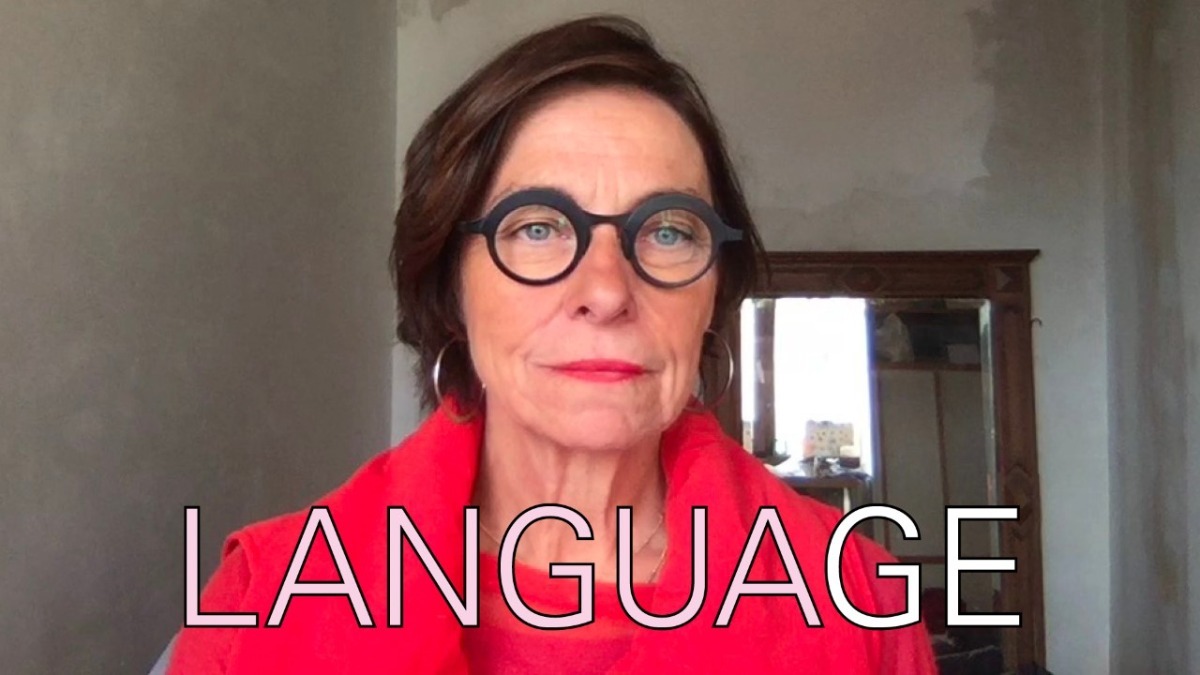
The creation and admiration of beauty is not the sole preserve of humans
Vents Vīnbergs
About the Belgian Philosopher and Ethologist Vinciane Despret
In one of the last crowded meetings with contemporary dance students in Brussels before the pandemic took hold, Vinciane Despret (1959), a professor of philosophy at the University of Liège and a major voice in current animal studies, recalled the famous American biologist Lynn Margulis' formula:“life is a matter gone wild”. This aphorism, and the way I have tried to interpret it, contains much of what is interesting to think about in the context of Despret.
First and foremost, it is science’s obsession with categorization and hierarchy-building that Despret criticizes. Based on her popular book, What Would Animals Say If We Asked the Right Questions? (published in French in 2012, translated into English in 2016) Despret is often considered an ethologist, an animal behaviouralist (although it essentially addresses her constant question of the relationship between the observer and the observed), therefore we can look at this scientific issue from a biology context. Since Darwin and 19th century socio-economic theories, it has been dominated by a competitive narrative. The animal and plant world is seen as a field of endless competition, while the hierarchical systems thus seen in groups of animals were immediately projected back into human society, thereby "proving" that the competition between humans is natural, and therefore eternal. All forms in which species and communities have evolved, according to the principle of natural selection, have proven or latent utility, and are guided by the logic of naked survival. Therefore, although this view has been radically criticized since the 1960s, the assumption of "natural" competition continues to influence both the research process and the use of certain language, in which various hypotheses compete for survival and the status of "absolute truth". Authoritative reduction to one correct explanation may be permissible in the exact sciences, which operate with mathematical abstractions, but it is very problematic in those social sciences (and, according to Despret, also in biology) where research results affect the subjects themselves.
I, for example, have just experienced such a small struggle, choosing one of the several translation options that I thought would most closely correspond to the original Margulis quote. Despret however, would say that the versions that were rejected, in this case, have the same right to exist and the same truth, and that life is determined by a sequence of such arbitrary and aesthetic choices to a much greater extent, than, by implicit utility in the name of survival or the only truth.
Despret sees this kind of diversity and the simultaneous equality of these possible versions in both science and nature. Researchers are well aware that what they discover is closely related to how the questions are formulated. What you see, is what you pay attention to.
Returning to the "life gone wild" trope, there are many observations that cannot be explained by the idea of natural or sexual selection and the blind mechanism of the "selfish gene". If you strictly adhere to the logic of usefulness, then it is obvious that flowers intoxicate and enchant with their beauty in a manner much more "wasteful" than necessary. The singing and parading of birds is also so excessive that it’s not enough to simply write it off on the instinct of mating. The same can be said about many other pleasurable and aesthetic choices observed in the behavior of other animals.
Despret invites us to look at it this way: people are used to believing that the ability to notice and create beauty is the prerogative of their intellect. However, if beauty is associated with artistic practices, then its origins can be traced directly to the excessive splendor of living nature. Art needs space, or rather, space creates an opportunity for art (Deleuze and Guattari ideas, and when referring to them, Despret uses the word "territory"). Thinking in utilitarian and economic categories suggests that plants and animals use the possibilities of space to show off their beauty, whereas Despret sees it as the opposite process - beauty has a chance to flourish because there is space in which it can take place. Thus, cautiously referring to the observations of many ethologists, but especially ornithologists, she hypothesizes that the "superfluous" beauty of living nature may have originated as "art for art’s sake", from which all living beings derive, not so much practical benefit, as aesthetic pleasure. In this sense, space is not the private property of its occupants, which should be protected, conquered or lost in the struggle, but a universal stage on which its various actors interact, captivating and seducing each other.
The economically oriented mind will once again delight and immediately see examples of how this mutual seduction really happens at every step in people's daily lives. There’s a lot of literature around about how it’s not humans that have domesticated animals and selected crops for their practical survival, enjoyment and friendship, but on the contrary - animals and plants with their beauty, smell, taste and other arousers, have seduced us into becoming their guardians, servants and life partners.
(In a conversation with the students in Brussels, Despret used the following joke: "Pets are like cuckoos who just don't know yet how to throw our babies out of the nest.") Yet even this example, although it reduces the chauvinism that anthropocentricism is prone to, it still speaks to the economic advantage model of competition and evolution. Despret calls for resistance to this logic, and to notice in how many different ways life manifests itself not because of a predisposed functionality, but more often - by opposing it and experimenting with beauty for beauty’s sake.
Vinciane Despret's talk “Phonocene’: Bird-singing in a multispecies world” took place on September 17, 2020 as part of a series of online lectures and talks organized by RIBOCA2.